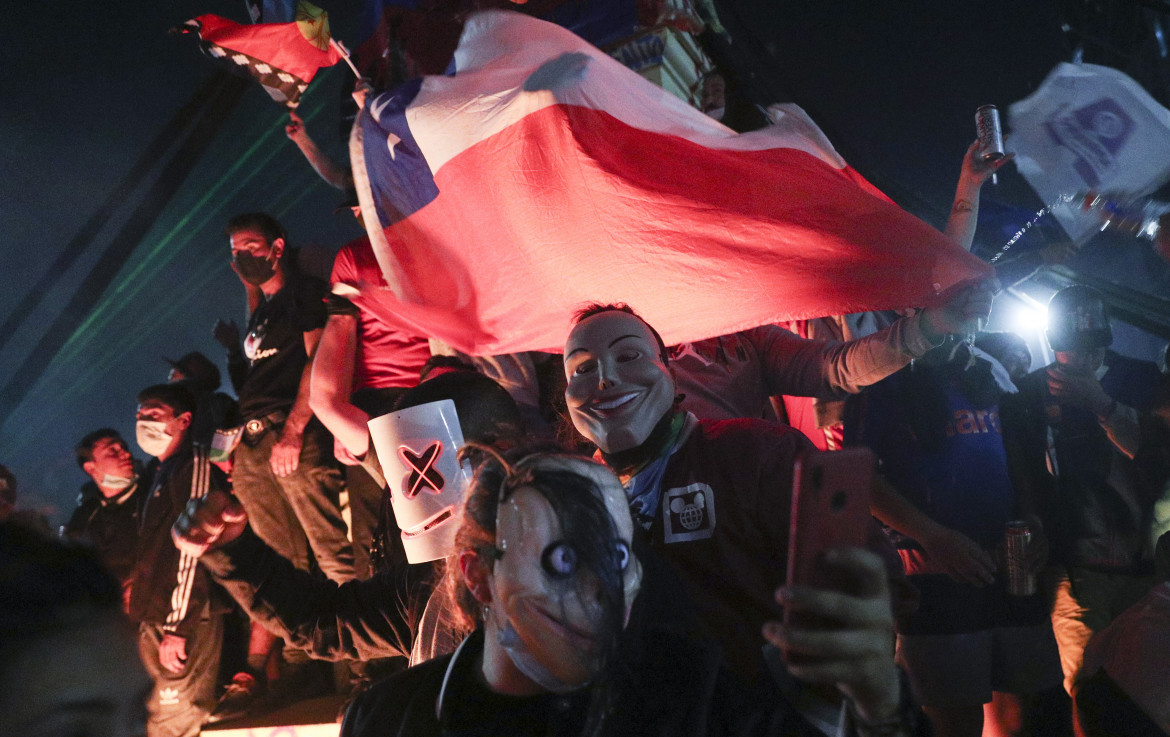Commentary
After Bolivia, Chile marked a turning point unthinkable a few months ago
The result of the plebiscite in Chile may have important repercussions in Latin America, where elections will take place in Brazil, Paraguay, Venezuela and in Ecuador.

With a large majority (79%), the Chileans have decided to get rid of the Constitution dictated (in 1980) by a group of far-right jurists under the shadow of General Pinochet. And they have chosen to create a new democratic Magna Carta, drawn up by a Constituent Convention directly elected by the citizens and on the basis of equality, i.e. consisting of 50% women and 50% men and with a part of the seats reserved for indigenous peoples.
It is an historic success of the popular struggles that have been calling for an end to the right-wing government and profound reforms. For more than a year, social movements in Chile have continued their struggle despite the harsh repression. On several occasions, including in his speech Monday after the results of the referendum, President Piñera has categorized the protests as a “wave of violence” caused by pandillas (criminal gangs).
The so-called “gangs” consist of students, NGOs fighting for the environment and the protection of the territory, the No+Afp movement (against unfair pensions), the people and nation of the Mapuche and a feminist movement that has shaken the country.
In order to allow the state to regain control over civil life, at least to a certain extent, all the political forces signed the “Agreement for social peace and the new Constitution” last November, which included Sunday’s referendum.
The agreement gave some temporary breathing room to the government led by Piñera, who last night spoke of “a success of Chilean democracy.” However, it was a concession extracted from the political elites by the popular struggles, which was turned on Sunday by a large majority of Chileans into a clear rejection of both the Pinochet Constitution and a statement of distrust in the political forces as a whole.
The “Agreement” was also signed by the opposition, giving up the demand for a Commission for truth and justice that would condemn the serious violations of human rights committed by the military police and the army deployed against the protests: 40 citizens murdered, 350 people with damage to their eyesight due to tear gas fired at head height, 20 mutilated, 3,500 wounded, thousands arrested.
As a result, 700 prosecutions for torture and sexual violence and 8,375 cases of human rights violations have been practically ignored and left without follow-up.
The referendum made it possible to express in a clear manner, and with a strong majority, the popular rejection of a Constitution imposed in a corrupt manner and by force, which installed an economic model in the country that has privatized practically everything that could be privatized, including water.
Furthermore, through the concept of subsidiarity, it reduced the state to its minimum expression.
In essence, following the neoliberal theories of the Chicago boys, students of Friedman and favorites of Pinochet, the previous Constitution made it possible to create an extractivist, consumerist and deeply individualistic society. It is an economic and political system cited for its “successes,” especially by the U.S. But behind the 15,000 dollars in GDP per capita that the government has boasted about lies the fact that 53% of workers earn less than 540 dollars a month, which is below the poverty line for a family.
In addition, the previous Constitution created the legal conditions that have led to a brutal level of inequality in the country, with 1% of the population—which includes the president and his family—who have amassed colossal fortunes: 26.5% of the total wealth.
In the coming months, until the elections in April, when the citizens will choose the 155 members of the Constituent Convention, the cabildos and territorial assemblies will continue working: these are the popular bodies that will have to discuss the major issues that will be covered by the new Constitution, above all the dramatic level of inequality and social reforms.
They will also discuss how to address the limits that the right has imposed, with a law that requires that the articles of the new Constitution must have the approval of two thirds of the constituents. After the extraordinary electoral victory of the MAS and his presidential candidate, Luis Arce, in Bolivia, the result of the referendum in Chile may have important repercussions in Latin America, where elections will take place in Brazil, Paraguay, Venezuela and, at the beginning of next year, in Ecuador.
As the Argentinean analyst Atilio Borón wrote: “Perhaps, without realizing it, we are witnessing a historical turning point that was unthinkable until a few weeks ago.”
Originally published at https://ilmanifesto.it/dopo-la-bolivia-il-cile-una-svolta-impensabile-fino-a-qualche-mese-fa/ on 2020-10-27
